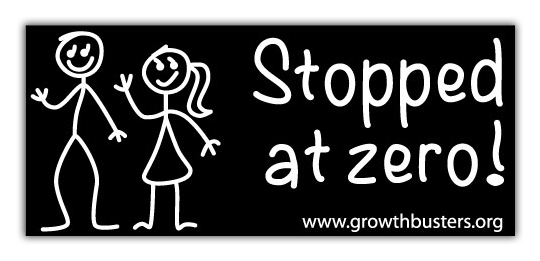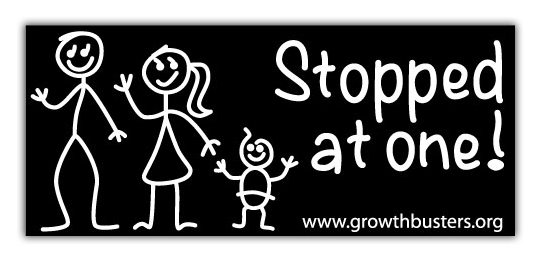Cleaning up Our Dirty Laundry (Podcast episode 22)
Don’t shrink your clothes, shrink the footprint of washing them
When you think of laundry, typically you’re after the whitest whites, and no shrinkage. How about we think outside the box and “green” our laundry practices by shrinking their footprint? This episode answers your questions and offers advice on how to minimize the environmental impact of washing your clothes. Also an often forgotten, but important aspect, of making recycling work.
Did you know 75 to 90 percent of the energy your washer uses goes to warming up the water? You can save $60 or more per year on your energy bill by washing in cold water, according to Consumer Reports. But not all laundry detergents work well in cold water. We address that in this episode and offer additional information in the links below.
LINKS:
Heidi Bischof’s Earth Ethic blog at Medium
After recording this podcast, Heidi found this indicating laundry pods are probably safe for people and planet:
Detergent Pods are Handy, but Can I Use Them With a Clean Conscience? – Grist’s Ask Umbra
Also, here’s a related tip not discussed in the podcast: Washing your dishes by hand probably wastes water!
Why You Shouldn’t Wash Dishes by Hand
Two products designed to capture plastic microfibers in our washing machines:
The Cora Ball
Guppyfriend Washing Bag
Essential Working Group Guide to Laundry Detergents
Why Are You Still Washing Your Clothes In Warm Water?
9 Ways to Save Energy Doing Laundry
Subscribe (free) so you don’t miss an episode:
Tags: Climate Change, footprint
Trackback from your site.








Jeff W.
| #
Hey Dave,
Last I checked world population is now at 7.7 billion..
Other comments:
– milk on tap sounds good; wonder why I’ve not seen it here in the US – perhaps different regulations make it difficult to do.
– home delivery of milk in heavy glass seems more about nostalgia or novelty than being environmentally responsible; I can’t see how a diesel truck driving around delivering one or two bottle of milk per house could possibly be more efficient than just taking all the milk to the store and me riding my bike to pick it up.
– I recall having a retractable indoor clothes drying line which we used in the basement growing up; haven’t seen them in a while but it wouldn’t be hard to rig something on ones own.
– in my experience front load washers leave the clothes smelly unless you do multiple rinses so it doesn’t help save much water and then they need special low-sudsing detergent so you can’t use homemade detergent. They are also more complicated electro-mechanically than a top-load unit – more embedded energy, something that is often over-looked when comparing devices based on energy use.
– my father, who grew up in the 30s, continues to wash his clothes in buckets or the bath tub and line dries them; very simple if you reduce your wardrobe and wash as little as is tolerable. A dry climate helps A LOT.
Happy New Year!
Reply
Dave Gardner
| #
Thanks for the thoughtful comments, Jeff. I’ll share some of this on the next episode of the podcast. Here are a few of my thoughts:
1) I get your point about transporting the heavy glass, and doing it via diesel truck vs. bicycle. If everyone did their shopping via bicycle that would be great. Most don’t, however (let’s keep encouraging everyone to), so it makes sense that ordering online in many cases has a smaller carbon footprint than buying locally. Having that UPS truck dropping off lots of orders in one trip down your street is more efficient. Of course, buying local is so much better toward having a healthy, sustainable, resilient, local economy – so “buy local and do that on your bike” should be our first choice.
2. Our household gets our mile in reusable plastic jugs. We pay a deposit and get it refunded when we return the jug. We don’t get the milk delivered because our consumption isn’t predictable. But we NEVER get in the car and make a special trip to get milk. We just swing by the milk store when we’re going by on the way to someplace else (sometimes by car, sometimes by bicycle).
3. As for clotheslines, because our backyard is a steep hill we’ve opted for hanging clothes indoors. The drying racks I used for years were inadequate so a real pain. Finally I found this rack and it is awesome! https://smile.amazon.com/dp/B07D5LKGGT/ref=psdc_695488011_t3_B0746QCJLR
Note that this link is Amazon Smile. If/when you must shop at Amazon, please use Amazon Smile (smile.amazon.com) and designate Citizen-Powered Media as the benefitting non-profit. Amazon will then donate a small percentage of your purchases to our non-profit project to keep the GrowthBusters podcasts, short films, etc. going. Thanks!
Reply
Marianna Young
| #
I grew up with a German mother who only hung up clothes outside. Neither my sister nor I use electric clothes dryers and both of us live in cold and snowy climates (at least for now). I always wonder about washers and dryers being paired in sales advertisements; when did it become a given that one always purchases both units together? Why not just a washer? Ads make people feel that there is no choice about not getting a dryer.
Reply
Kristine Abolina
| #
I’m surprised about “green advertisment” of dishwashing mashines – those articles about “big” ecological impact of dish washing by hand. No one dishwasher can be as efficient as washing dishes in double bowl sink by hand and no running water – one bowl for washing and other bowl for rinsing. Impact – no additional water heating in dishwasher, no electricity use for running dishwasher, no production of dishwashers and much less waste afterwards. The real proposal must be not to use running water for dishwashing by hand like toothbrushing with no running water.
Reply
Dave Gardner
| #
Kristine, is your comment in response to the article I linked to above, Why You Shouldn’t Wash Dishes by Hand? Just want to be sure you’ve read it and are responding to it.
Reply
Lore
| #
I hand wash my dress clothes because it makes them last longer. I use a bucket and wash clothes in same color family from lighter first in same bucket/eco detergent ending in darker with same detergent water in case the color runs. I hang them to dry and often buy wrinkle look cotton for comfort and convenience. I also extend the life of my quality clothes, or thrift store finds by re dyeing them to revive or change color. It’s cheaper, fun, creative, and consume less. I enjoy extending the life of clothes I love since it isn’t always easy to find them in the first place.
Reply
Dave Gardner
| #
That’s impressive, Lore!
Reply
intrust antivirus software
| #
So I definitely learned something new when you mentioned that you save energy using cold water because you don’t have to use energy to heat the water up. I honestly never thought about that. I’ve been washing my laundry in warm/hot water all this time and I could’ve been saving money. I told my mom and she admitted she never considered that, anyways thank you for saving me some money.
Reply